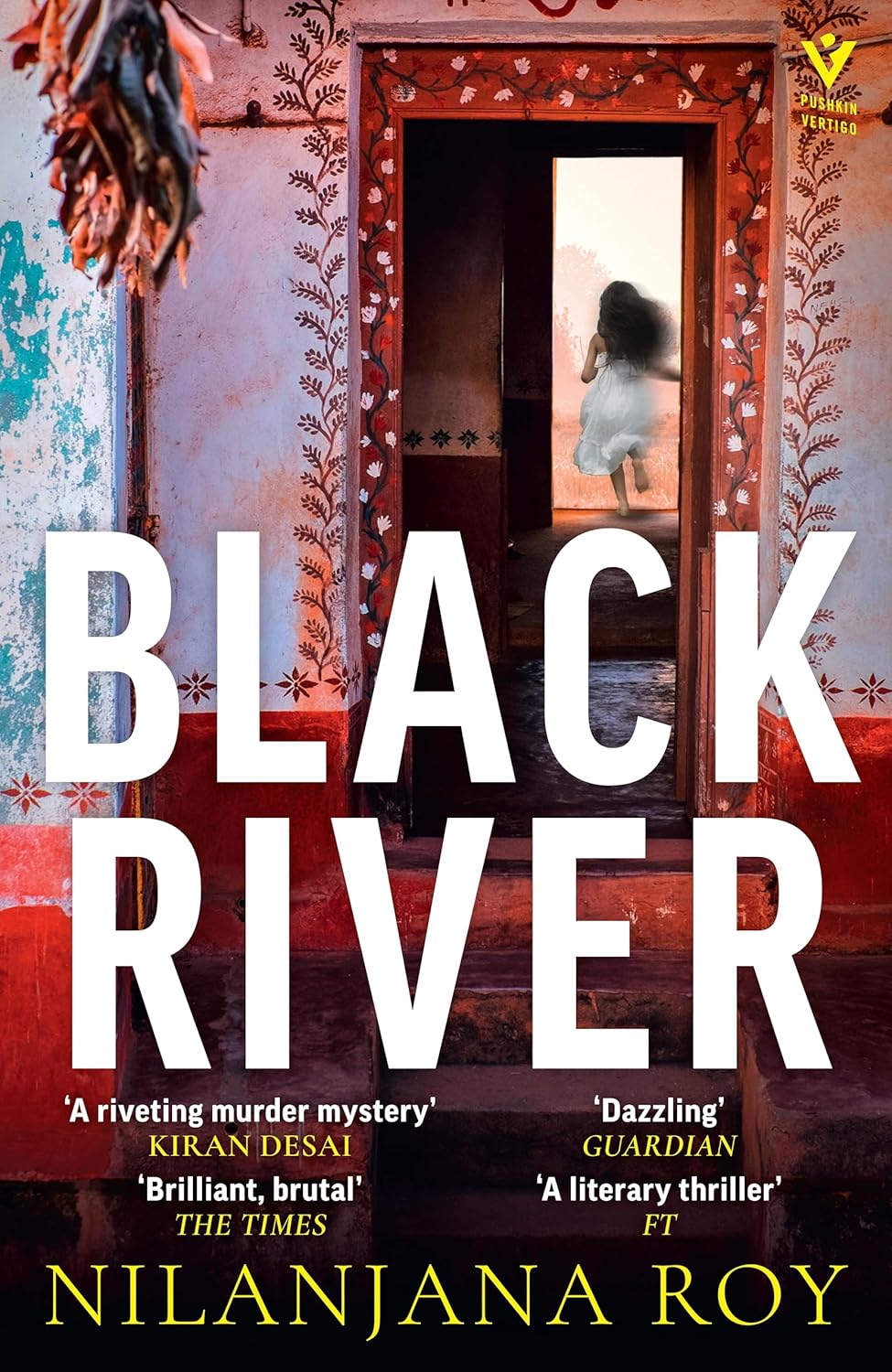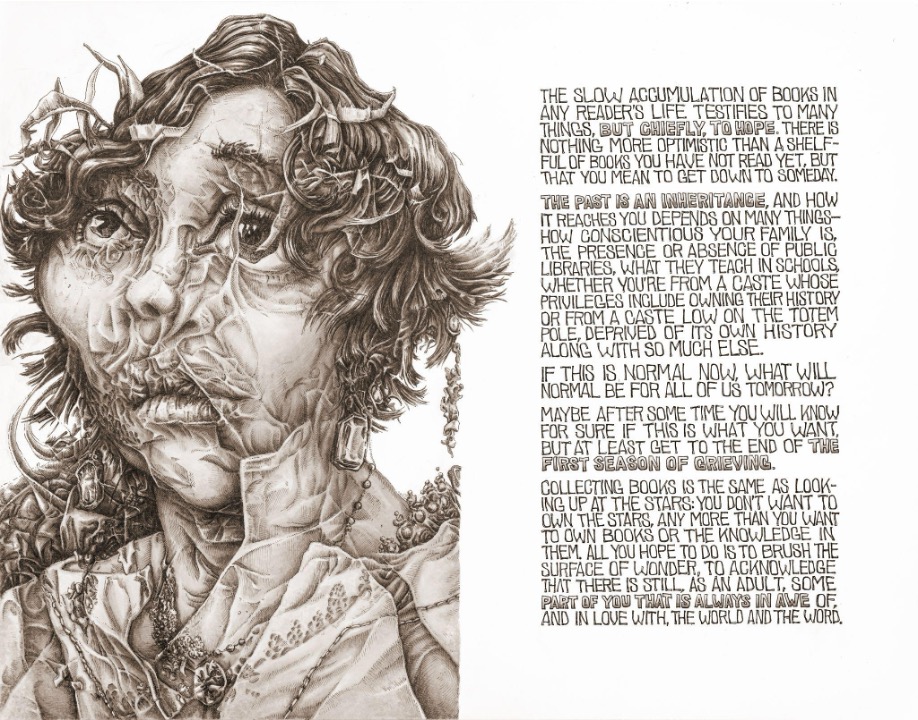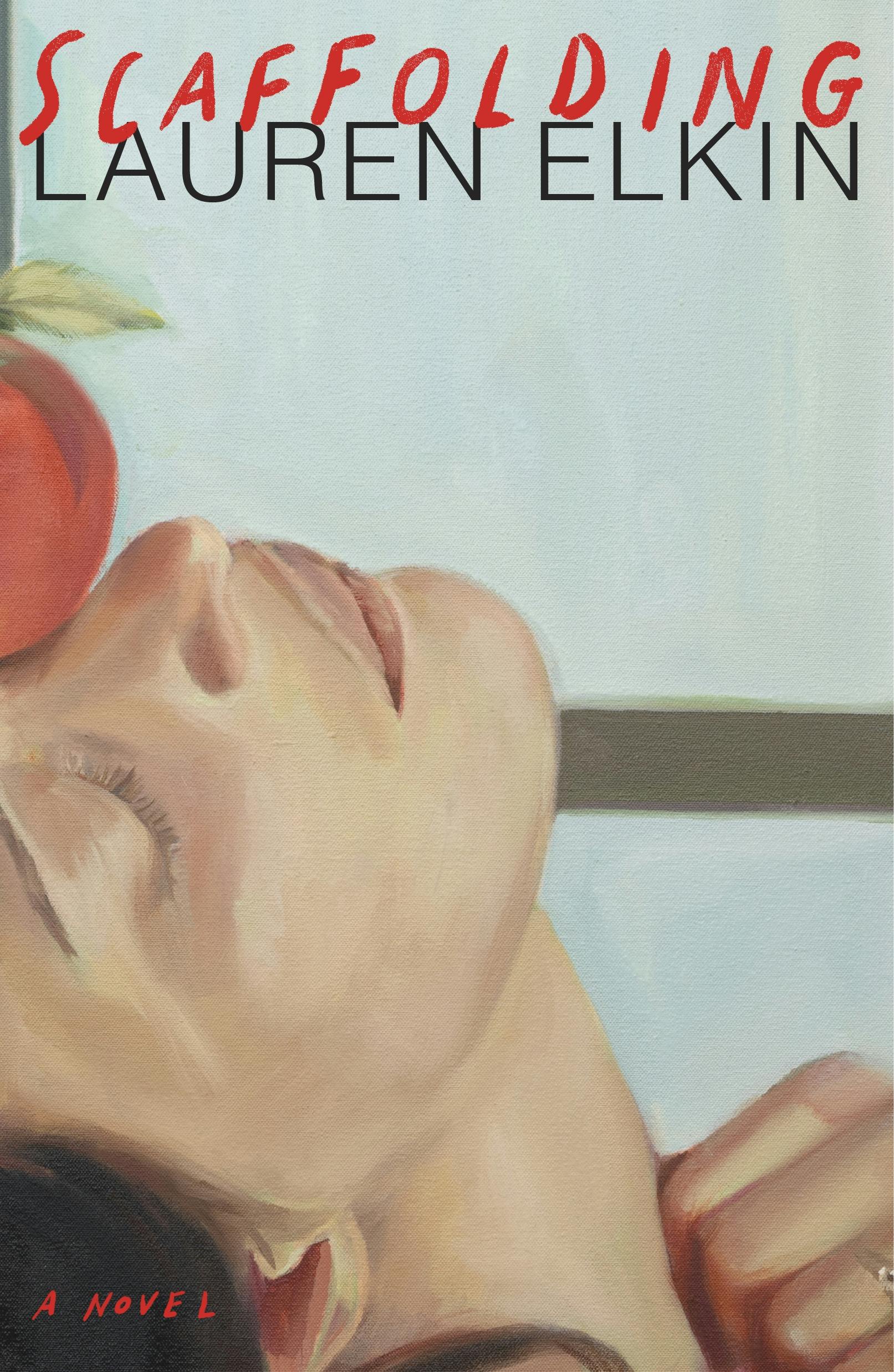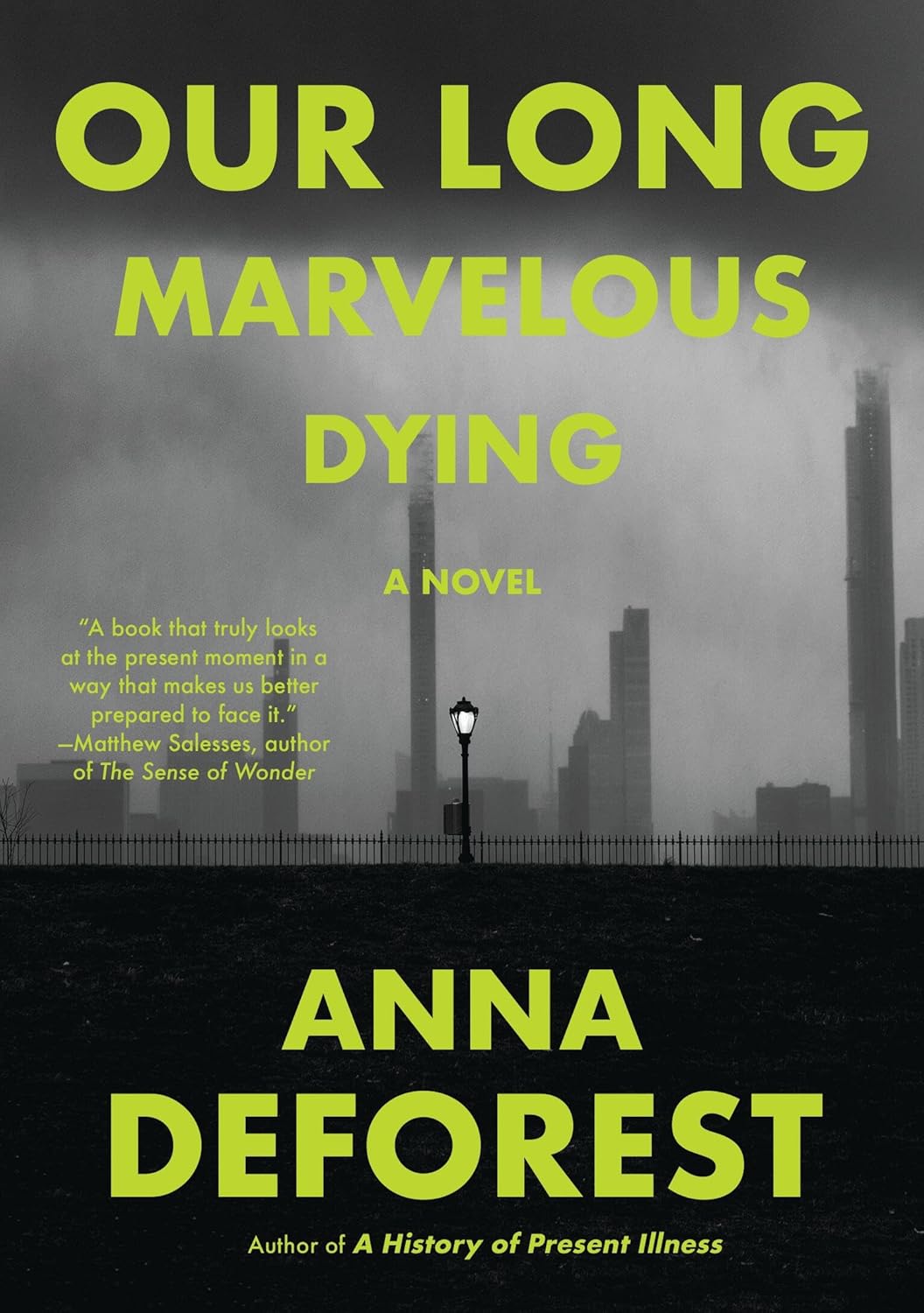by Sarah Moorhouse
The question of how to take up space—a question particularly relevant in the wake of the pandemic—is the common theme of Lauren Elkin’s Scaffolding and Ayşegül Savaş’s The Anthropologists. Both novels follow couples working out how to build a life together, aware that such decisions will set the course for their future. For Aysa, the protagonist of The Anthropologists, creating a home is a structural process that makes things “sturdy.” Anna, the protagonist of Scaffolding, by contrast, is restless within the “official containers” of her marriage and driven to experiment with modes of habitation that offer more openness. Situated at similar transitional points in their lives, Elkin’s and Savaş’s characters behave very differently: Aysa is determined to create rules and habits that will help solidify the contours of her life with her husband Manu, whereas Anna seeks to dismantle her routine, bent on grasping a hazily-defined form of freedom.
Anna’s distrust of stability stems, it seems, from an event that exposed the fragility of it: she and her husband David have recently suffered a miscarriage. In the aftermath of this tragedy, Anna has been laid off from her work as a therapist and David has moved temporarily to London, leaving her alone in their Paris apartment where she obsesses over a kitchen renovation. The couple’s life together has been put on hold. What’s more, Anna is preoccupied by memories of Jonathan, her great love who left her with little explanation a decade prior. Unable to put the past to rest, Anna frets about the elements of her husband’s romantic history that she cannot be a part of, wondering: “was I shorter, taller, thinner, fatter, darker, lighter than the girls he’d been with?”
Anna worries that it is impossible “to come to each other new,” yet it’s that lack of newness that makes others interesting to her. She constantly speculates about the inner lives of those around her, from the previous occupant of her Paris apartment (whose life we learn about in a cleverly structured middle section of the novel) to the nameless man she sees at the bakery each morning. Alone in Paris, Anna befriends her neighbor Clementine and is immediately enraptured by her charisma and turbulent romantic history. Fiercely opposed to marriage and untied to a particular career, Clementine occupies what Anna sees as a “borderless realm.” By bringing her new friend into her apartment, Anna begins to test her own borders.
Clementine offers Anna an alternative to the strict parameters of marriage and a lifestyle defined through its rejection of that “border protecting a country of two.” But this supposedly radical way of living nonetheless requires its own dividing lines. We learn that Clementine has a boyfriend, and his identity—spoiler alert—is none other than the Jonathan whom Anna cannot move on from. When the two reunite, a love triangle ensues that threatens to upend Anna’s marriage as well as her fledging friendship with Clementine. It becomes clear that an affair, like marriage, revolves around the question of territory. Anna compartmentalises her actions, musing that “being with Jonathan doesn’t entirely feel like infidelity to David—in a way, it feels like fidelity to some younger version of myself.”
By plotting relationships in the language of physical spaces, Elkin erects a satisfying stylistic architecture for the novel. Infidelity, according to her model, unfolds as “a series of inoffensive doors you open, so by the time you find yourself in front of the one that counts . . . you are too far gone.” Hence the novel’s title: the scaffolding stage, during which things aren’t yet set, is preferable for Anna to the finished product, with its threat of making one stuck. (We see what that stuckness might look like when the narrative briefly switches to the lives of the previous occupants of Anna’s apartment; bored and contemplating infidelity, Florence and Henry have begun to feel that their marriage, like Florence’s wedding ring, “didn’t quite fit.”) At the end of the novel, Anna walks past the Tour Saint-Jacques and remembers how it looked when it was being restored: “I loved it better with the scaffolding,” she says, “when we didn’t know what was taking shape beneath.”
If the central anxiety of Elkin’s novel is the prospect of belonging to a place, a marriage, and a way of life, this same prospect is Savaş’s characters’ central hope. Far from lamenting an inability to come to each other “new,” Aysa and Manu feel too new. Having moved together to an unspecified city in a country far away from their respective places of origin, the couple are unmoored from customs and community. Rituals are what make a life “real” for Aysa, and the couple’s quest to buy a flat—which is told through a series of property visits—is tied up with their mission to assemble “elements with which . . . to build a home.”
The irony, of course, is that they already have one, for where Scaffolding puts monogamy to the test, The Anthropologists offers an ode to it. The couple’s relationship anchors the narrative; though Aysa does worry about the “smallness” of her life, fretting about far-away relatives and lamenting that she only has one “native friend” in the city, she and Manu occupy not only a “country of two” (to recall Clementine’s derisive assessment) but their own expansive world. Aysa remembers how, when they got together, “the world . . . stretched large enough for the two of us—a whole universe—and it left everything else behind a curtain.” Savaş maps out this “universe” with understated grace: the couple’s shared nicknames and ways of comforting one another, their liking for pastries and detective shows, their few but rich friendships.
As the novel progresses, Aysa builds a mental list of her rituals with Manu, acting as anthropologist of their two-person society. At the same time, as part of her research for a documentary she is making, she conducts a series of interviews with strangers in the park, seeking to identify and record the invisible habits that anchor people to this public space. Some come to run laps, others to play music, still others simply to breathe. As she makes progress with these two projects of filming and house-hunting, Aysa’s anxiety about her and Manu’s rootlessness begins to lessen. Beyond the eccentricities of individual routine, she realizes, “there was, also, only one way to live beneath the multitude of forms, one way forward through the fleeting hours of a day.”
Both Elkin and Savaş suggest that we leave traces of ourselves in the spaces we inhabit—we can’t help but put down roots. The longer Anna stays in Paris while David is in London, the harder it becomes for the two to understand one another. Meanwhile, Aysa’s increasing cultural belonging is bittersweet because it takes her further from her family; wearing a trench coat to greet her father when he comes to visit, she cringes when he exclaims, “you fit right in.” In a recent interview with The New Yorker, Savaş reflected on this theme of cultural belonging in the novel: the narrator of The Anthropologists, she explains, “feels torn between various ideas of home; she does not know which one she should commit to.”
While this is true, The Anthropologists is not a novel of anguish because, as the couple forge new connections, they discover a source of continual, calm joy. With Ravi, their closest friend, they bond over a shared disdain of therapy and what they see as its “decadence” (an amusing contrast with Elkin’s cast of therapists). This “was a binding element of our friendship, a way to set ourselves apart,” recalls Aysa; “we stuck to it like a motto, an animating spirit of our group.” Such in-jokes and shared tastes, rather than a place’s physical features or landmarks, create the feeling of home. And so, the couple’s search for a new place to live becomes a process of attempting to divine what the intangible details of their future lives might look like. With each visit, they try to pin down the atmosphere of the space: is it a place where they might have children? Will they argue there?
Wrapped up in this process is guesswork about the lives of the current or previous inhabitants. Entering one flat, the couple immediately sense that something is off: “Some misconfiguration, as if the rooms had been joined the wrong way.” They feel justified in this intuition when they learn that the couple who own the property have just separated. Aysa relates the incident to her grandmother, who pronounces that the place “must be teeming with them” but advises: “Let them be and get on with your own life.” This way of acknowledging the private lives of others, which overlap with us in space but remain always at a remove, emerges in Scaffolding too: Anna detects traces of her predecessors everywhere in her flat, from the wallpaper to the ancient dishwasher. With her renovation finally complete, Anna hopes for a clean slate: “there are no more ghosts here,” she decides.
If these uncanny absent presences have a particular significance in both novels, it’s that they remind us that home, our inhabitancy of a given space, is ever temporary. Steadiness ebbs and flows—we seek it, we resist it. Ultimately, it’s clear in both Scaffolding and The Anthropologists that no real equivalence exists between the brick and mortar of a house and the constant flux of human emotion. Propelled by the invisible relationships and customs that shape our days, we are all to become “ghosts”—and that’s fine.












